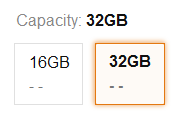- Joined
- May 18, 1997
- Messages
- 55,664
If Intel Optane Memory interests you, and god knows we have been marketed to death by Intel over the last few months, Allyn "Flacid Tart" Malventano, the brains behind everything-memory at PCPer is on the case.
Finally! Optane Memory sitting in our lab! Sure, it’s not the mighty P4800X we remotely tested over the past month, but this is right here, sitting on my desk. It’s shipping, too, meaning it could be sitting on your desk (or more importantly, in your PC) in just a matter of days.
Allyn's review is more than worthy of a good read, and it looks as though he has left no stone unturned. If you have purchased a Z270 chipset motherboard and a Kaby Lake CPU recently, you already have a system that can very likely take advantge of Optane memory through the M.2 slot on your motherboard. This is a hard launch as well and you can purchase Optane today. And the cost might just make you pull the trigger if you are running spinning disk drives. That said, Allyn did find that there were some small benefits for SSD users as well.
While the intended market is clearly as an upgrade to HDD-only systems, measurable benefits can be seen even when caching a SATA SSD. When paired with a budget SATA SSD, we saw boot times cut in half and coming in nearly a second faster than a NAND-NVMe SSD!
So while things look really good for Optane, this is probably going to be a product that does not carry a lot of interest for the upper-level enthusiast....which may be why Intel has never contacted HardOCP about the product.
Finally! Optane Memory sitting in our lab! Sure, it’s not the mighty P4800X we remotely tested over the past month, but this is right here, sitting on my desk. It’s shipping, too, meaning it could be sitting on your desk (or more importantly, in your PC) in just a matter of days.
Allyn's review is more than worthy of a good read, and it looks as though he has left no stone unturned. If you have purchased a Z270 chipset motherboard and a Kaby Lake CPU recently, you already have a system that can very likely take advantge of Optane memory through the M.2 slot on your motherboard. This is a hard launch as well and you can purchase Optane today. And the cost might just make you pull the trigger if you are running spinning disk drives. That said, Allyn did find that there were some small benefits for SSD users as well.
While the intended market is clearly as an upgrade to HDD-only systems, measurable benefits can be seen even when caching a SATA SSD. When paired with a budget SATA SSD, we saw boot times cut in half and coming in nearly a second faster than a NAND-NVMe SSD!
So while things look really good for Optane, this is probably going to be a product that does not carry a lot of interest for the upper-level enthusiast....which may be why Intel has never contacted HardOCP about the product.
![[H]ard|Forum](/styles/hardforum/xenforo/logo_dark.png)
